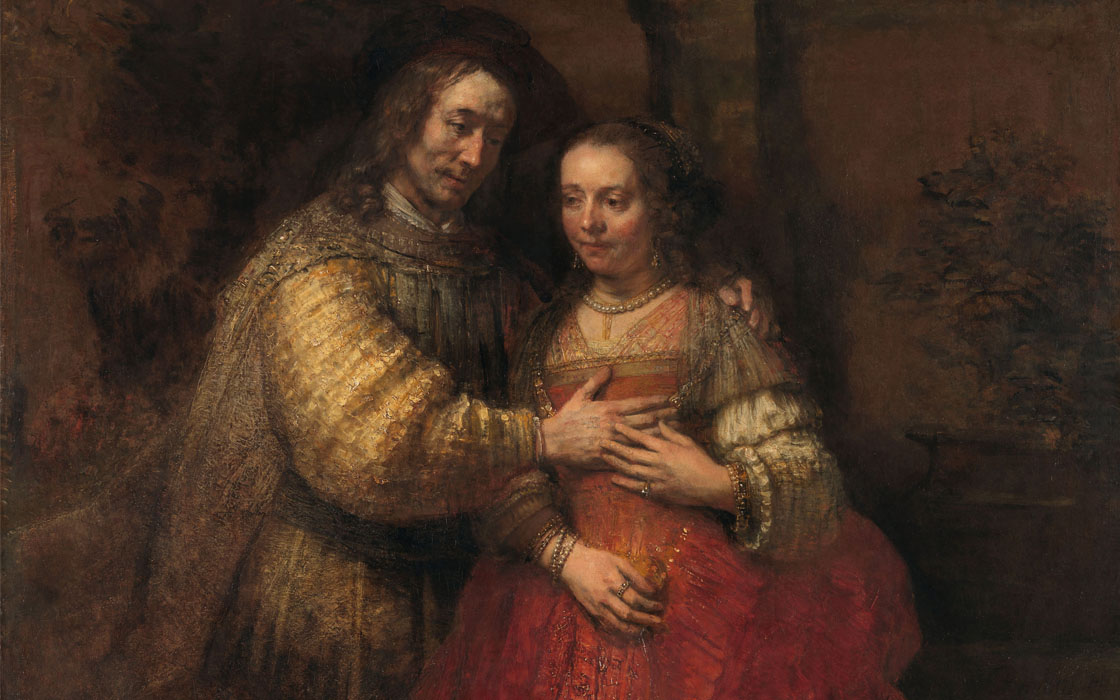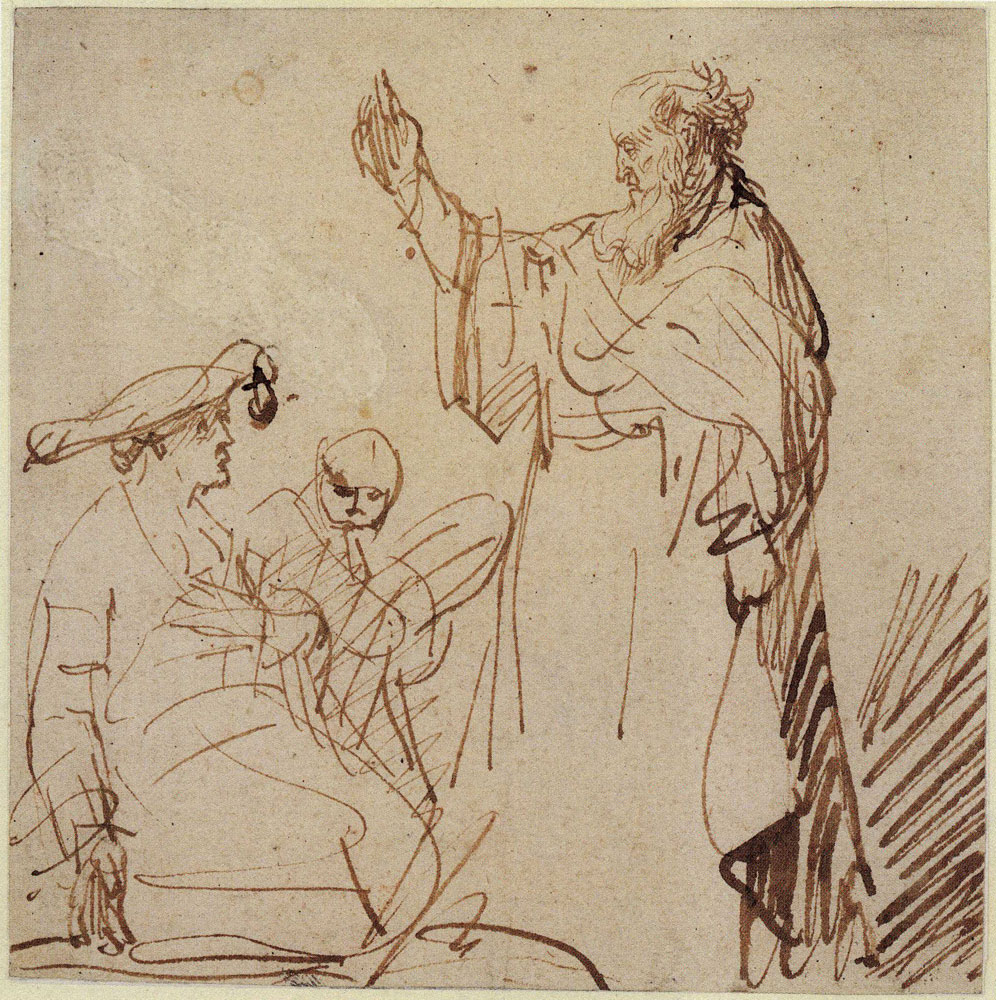Yesterday at noon the US secretary of state sent best wishes to the people of France, eighty years after the liberation of Paris and 75 years after the founding of NATO… and 235 years after the storming of the Bastille, which marks the beginning of the French Revolution.
Yesterday also a twenty-year-old man got to the top of a building near a political rally in Pennsylvania and shot his rifle at the former President. Mr Trump was hit in the top of the ear, and rushed to safety. One spectator was killed, two more seriously injured, and the Secret Service found and killed the shooter.
Between the 18th century and yesterday there were many acts of individual violence, gun violence, assassinations and attempted assassinations, of presidents, prime ministers, and many others. There have been revolutions, rebellion, wars, and riots.
Two thousand years ago two acts of political violence were committed that are connected in today’s gospel. King Herod ordered the death of the popular preacher John the Baptist. Later the Roman governor of Judea would order the death of John’s cousin, Jesus of Nazareth.
Both were killed in part because of political anxiety. Within decades the upheaval of rebellion after rebellion led to the demolition of Jerusalem. Of the Temple only a part of the western wall remains.
I do not equate any of these acts with another in specific motive, purpose, or result.
We can however know as people of God that acts of violence, gun violence, political violence, however motivated, are against the will of God.
As Presiding Bishop Michael Curry said last night, on Trump rally shooting:
"The way of love—not the way of violence—is the way we bind up our nation’s wounds. We decry political violence in any form, and our call as followers of Jesus of Nazareth is always to love. We pray for the families of those who were killed. We pray for former President Trump and his family and for all who were harmed or impacted by this incident. I pray that we as a nation and a world may see each other as the beloved children of God."
As the Psalm we sang today calls us to do,
for he is speaking peace to his faithful people
and to those who turn their hearts to him.
9 Truly, his salvation is very near to those who fear him, *
that his glory may dwell in our land.
10 Mercy and truth have met together; *
righteousness and peace have kissed each other.
11 Truth shall spring up from the earth, *
and righteousness shall look down from heaven.
12 The Lord will indeed grant prosperity, *
and our land will yield its increase.
13 Righteousness shall go before him, *
and peace shall be a pathway for his feet.
***
It is a call not to despair but to repentance. However dire the current situation, God is still extending a hand to humankind, stirring life and hope.
What is the Lord God saying?
Not to the people of the past, anymore, but to us. What shall we do in our current situation? What shall we do, facing eternity?
The Russian novelists of the 19th Century, in their great literature, asked the question, how are we to live?
It is not so different from the question people asked Peter, when he had baptized them: what do we do now?
Now what? is where we are now, where we always are, after the beheading of the Baptist, after the crucifixion of Jesus, after his resurrection and ascension, before the fullness of the kingdom of heaven is revealed in all its joyous power. Now what?
How are we to live - now? Or they asked Peter after Pentecost, what must we do?
Simple words, simple actions, in the telling of the gospels. Don’t cheat, don’t lie, don’t steal, give right weight and proper measure, share, look after the needy. Wait, but not just sitting around. Prepare by being ready, by getting into the habit, by living into the kingdom that is not yet - but whose citizens we already are.
Above and beyond and always questioning our earthly loyalties, to tribe or even family, is that divine calling, that allegiance unpledged, unbought, unvoted for, but ultimately demanding: the welcome undertow of the holy word, the joyous laughter of the Lord of mirth, the happy ending beyond all sorrow, that comes when we come to the Lord, and lay ourselves at his feet.
In our words and in our actions, together as a congregation, individually in our daily lives, and as citizens and people of common humanity, we are making positive steps toward inhabiting the kingdom of heaven that is coming into being.
This includes collective action as citizens and as assembled people of God.
This spring, United Methodists, Presbyterians, Lutherans, and Episcopalians each gathered to discuss their future, enact resolutions, and elect leaders for a new era.
More people will vote around the world this year than ever before.
Americans are voting. Arizona voters have begun to make their choices. St Matthew’s is again a voting center.
And – despite all anxieties and threats to the contrary – the kingdom of heaven came ever closer and even showed itself in places. May it become ever more visible in our lives and the lives we touch. Amen.
Let us pray for all worried about or touched by political violence or its threat, that there be listening instead of reaction, compassion instead of anger, and seeking of peace instead of reaching for a sword.
Let us not seek to relieve anxiety in rash and harmful ways but live and act in the compassionate love to which we are always called.
O Lord, mercifully receive the prayers of your people who call upon you, and grant that they may know and understand what things they ought to do, and also may have grace and power faithfully to accomplish them; through Jesus Christ our Lord, who lives and reigns with you and the Holy Spirit, one God, now and for ever. Amen.
July 14, 2014. JRL+
***
U.S. Department of State
Bastille Day
07/14/2024 12:01 AM EDT
Antony J. Blinken, Secretary of State
On behalf of the United States of America, I extend my warmest wishes to the people of France as you celebrate Bastille Day.
France, our oldest Ally, holds a cherished place in American hearts. Our enduring relationship is built upon the shared values of democracy, human rights, and freedom. Together, we have faced the trials of two World Wars and have worked in unity to build a more prosperous and secure world.
As we navigate the challenges of the 21st century, our partnership remains strong and multifaceted. We commend France’s leadership in addressing global issues such as climate change, including through the Paris Agreement, and we appreciate our close cooperation on security matters in Europe, Africa, the Middle East, and the Indo-Pacific. Our united efforts to end Russia’s war against Ukraine and to combat the climate crisis underscore the depth of our collaboration.
This year marks significant anniversaries and milestones, including the 80th anniversary of the Liberation of France, the 75th anniversary of NATO, and France’s role as host of the 2024 Olympic and Paralympic Games. We celebrate the sacrifices made by those who have fought for freedom and democracy and honor their legacy by continuing to work together to promote peace and prosperity.
Best wishes to the people of France for a joyous Bastille Day and a successful year ahead. Vive la France!
***
Episcopal Church Office of Public Affairs
Sat, Jul 13 at 7:00 PM
Statement from Presiding Bishop Michael Curry on Trump rally shooting
"The way of love—not the way of violence—is the way we bind up our nation’s wounds. We decry political violence in any form, and our call as followers of Jesus of Nazareth is always to love. We pray for the families of those who were killed. We pray for former President Trump and his family and for all who were harmed or impacted by this incident. I pray that we as a nation and a world may see each other as the beloved children of God."
***



